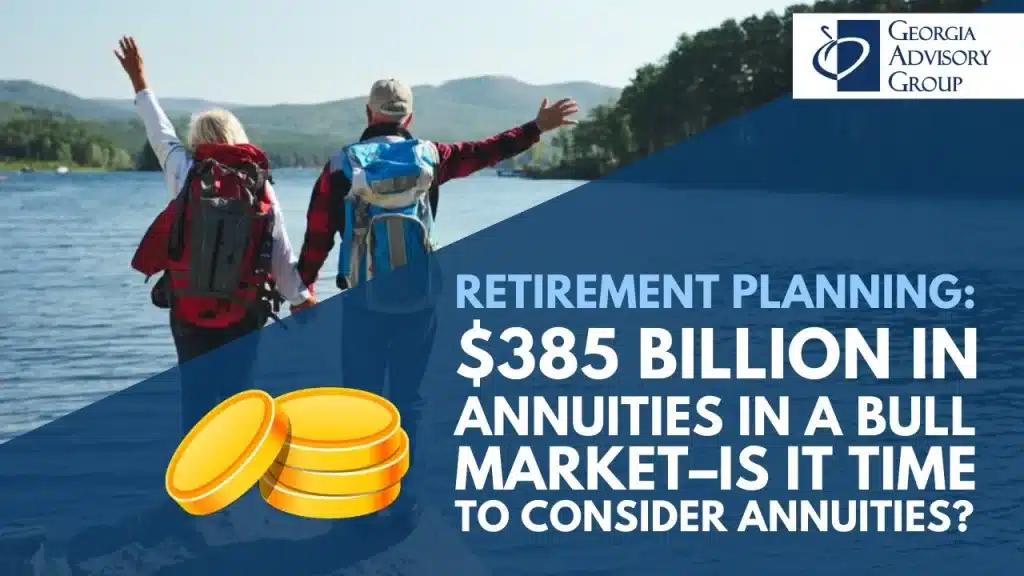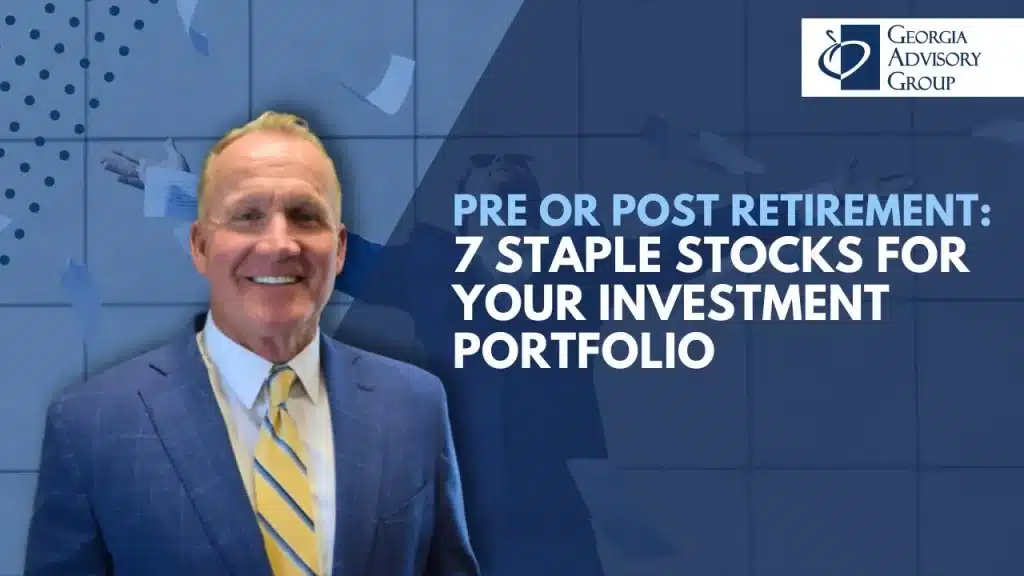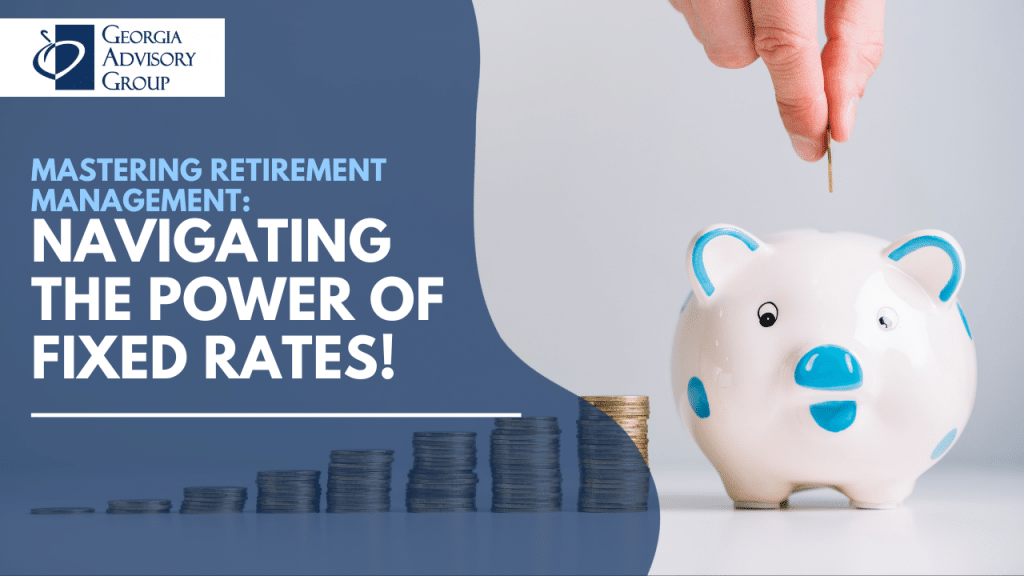Retirement Planning: $385 Billion in Annuities in a Bull Market–Is It Time to Consider Annuities?

Retirement Planning: $385 Billion in Annuities in a Bull Market–Is It Time to Consider Annuities? Last year in 2023, another record was set in the purchase of annuities, reaching an astonishing $385 billion of new dollars. Now, how’s it possible with record returns in the equities market in the last 30 years, all achieved in 2023? Hello, Dave Douly here, talking all things money and building wealth for over 40 years. As a registered investment firm, our goal is to provide you, the consumer, with viable options to make informed decisions concerning your wealth and income as you head into retirement. I could continue to argue that a major reason you see such an influx of dollars moved into fixed or indexed annuities has to do with the massive amount of tax-deferred accounts that make up the majority of the average family’s portfolio. Secondly, the transformation of the products themselves over the last 5 to 7 years is absolutely remarkable for guaranteeing income for both spouses, and with the rising rates, they have become more and more attractive in assuring returns. I’ve always argued with using qualified dollars for these type investment tools. When you realize your IRA-type accounts will be used strictly as income-producing vehicles over your remaining lifetime, then you understand entering into a long-term contract of 7 to 10 years with your principal always guaranteed for market losses. It gives most people comfort knowing they cannot outlive their retirement savings. In addition, the new annuities will double your income if you or your spouse were in need of any type of assisted living in the future years. So why the pushback from the average investor on these type investments? Yet, on the other hand, $385 billion in new dollars were poured into annuities last year alone. I believe like crypto or blockchain technology or AI, the misinformation gets us so confused it renders most investors frozen in place and shut off to review what options are available when using certain dollars for certain outcomes. When considering making up for lost income at retirement, a major shortfall between Social Security or pensions and what is needed to maintain your current standard living, then annuities should be a major part of consideration for your IRA or qualified dollars. Putting undue pressure on trying to secure certain returns each year on your portfolio can be a major mistake and too much of a burden to bear when trying to make up for lost income. Taking a laded approach to create guaranteed income has proven to be a better and more successful approach. The early years of retirement are what will set the stage for success or failure. Take the time to watch my video on sequence of returns risk and its impact on the outcomes in retirement. It will prove to be a major topic for how this can impact a successful retirement. Open your mind to options that are available to you when using qualified dollars, securing a less stressful outcome. If you’ve got a question diving deep into the inner workings of how annuities work, what mistakes to stay clear of, then reach out to us and we’ll walk you through the dos and don’ts of examining annuities. As always, subscribe below and you’ll get a new video each week on planning for the road ahead on all things money and income. Visit our website, click on the videos to watch countless videos that will help you become a more informed investor. Till next time
Retirement Investment | Are Your Investment Decisions Based on Emotion or Strategy?

Retirement Investment | Are Your Investment Decisions Based on Emotion or Strategy? Sir Isaac Newton once said, “I could calculate the movements of the heavenly stars, but not the madness of people.” What is the profile of investors’ behavior? How do we choose to remember or forget? Dave Doula here with George Advisor Group, giving you sound advice on how to take emotions out of disciplined investing. Stay tuned here for a few minutes and understand why 75% of investors underperform market averages by letting fear and greed get in the way of sound principles. Selective memory, recency bias, loss aversion, regret aversion, anchoring, and all forms of human behavior that have been built into our brains over thousands of years of adaptation to our environment are often counterproductive. Timing the market or any individual stock is a losing proposition, and those with long-term investment horizons have been able to ride out short-term market volatility with dynamic results. Now let’s consider the S&P 500 over the last 30 years. According to MacroBond, if you had invested a million dollars 30 years ago in 1991 and never made a move, in 2021 that value would be over $20 million. However, if you had missed just 10 of the best-performing days each year over 30 years, your return would be $6.8 million. That’s right; you would have underperformed by 300% compared to what the market would have done if you had left things alone. Sounds crazy, but it’s a fact. In today’s social platforms, there are two prevailing stances that drive bad decisions: optimism bias and negativity bias. The former leads to overconfidence and excessive trading, while the latter makes the brain more sensitive to bad news, leading to fear and avoidance of investment opportunities. But all is not lost. The key is to have a plan that eliminates emotions and creates a mechanism for avoiding missteps and ill-considered decisions. Here are some questions to ask yourself: Do I enjoy the day-to-day process of handling my investment portfolio?What do I know about this investment? Am I acting on word of mouth, herd mentality, or particular insights?Do I actively seek out contrarian opinions?Do I pause and challenge my investment choices before making a final decision?What would change my mind to protect against adverse outcomes?Are there other strategies to protect my portfolio without making rash decisions or trying to time the market?Finally, besides having a plan, don’t go it alone. Studies show that using experienced professionals to confer with regularly and implementing a disciplined approach will lead to outperformance. Remember, no one can manage your accounts as well as you can is just plain wrong. If your adviser won’t show you their personal account, then run—yes, run as fast as you can. Visit our website and subscribe to our newsletter, where you can get a video each week on great ideas for planning for the road ahead. You owe it to your family and, more importantly, to your peace of mind in today’s markets and political landscape. Subscribe below and leave a comment. Till next time.
Time to Act: Transform Your Employer 401ks and 403bs | Georgia Advisory Group

Are You Making These Mistakes with Your 401k or 403b? Find Out Now! Three major reasons to move that 401k or 403b now, and protection is number one. What in the world are you waiting for? Have you lost your mind? I can never understand why anyone would leave dollars sitting in a current or old employer’s 401k or 403b plan. Hello again, Dave Douly here, a 40-year veteran of the financial markets, and giving you straight answers on how to maximize wealth and income in retirement. Now, today I’m going to focus on those over 59 and a half that are still with their current employer, and those that have old 401ks still sitting with their old employers. Now let’s get started and dive right in. The first reason to get those dollars moved from your 401k is choices. Who doesn’t want more choices? Most employer plans have a limited selection of investment options. By rolling these dollars out to your own IRA, it opens the playing field to unlimited choices, especially to individual equities and away from target funds or, quite frankly, mutual funds. Please don’t ever choose target funds; it’s downright stupid. I could spend a lot of time here on that one, but I’m not going to waste my time or yours. But when I see target funds chosen inside anyone’s 401k, I want to, quite frankly, just throw up. If you cannot move those dollars yet because you are under age 59 and a half and still employed by the same employer, then move to a self-managed account within the 401k. 98% of employers now give you that choice as an option. Then find a great fiduciary to manage it for you or at least help you make some great decisions. So choices are the number one reason. Next is consolidation and simplification. If you have had several jobs over the years, you may have accumulated many retirement accounts. Now, consolidating these into a single IRA, which is really all you need, helps you track performance, stops you from overlapping positions, and just plain makes it easier to manage the account. I’ll have clients show me their IRAs with multiple positions, as an example where they have Fidelity’s total stock fund and Vanguard’s total stock fund. Now, between them, you own nearly 6,000 companies, and the overlap is at 95%. “Well, Dave,” you might say, “I’m really diversified,” and I would agree. You have bet on every horse in the race, but guess what? You’ll end up with the average. The idea was trying to lay off risk, but as Warren Buffett says, you are part of the ignorant. That’s why they created these types of investments. Mutual funds were created to make investing easy, so consumers wouldn’t have to think. When I see financial advisors doing the same thing, placing large amounts of your portfolio in countless mutual funds and charging you, the consumer, an ongoing management fee, I just scratch my head. It tells me they too are just lazy in doing their homework to buy great companies with great management and tons of cash on hand. You need to run as fast as you can if your portfolio looks like that. Now, the third and most important reason to get that 401k or 403b move is protection. Now, there’s no way to protect your positions from fast-moving markets in a 401k or 403b; you’re just along for the ride. Yet, 80% of families’ net worth, in real dollars, not hard assets, is tied up in qualified accounts IRAs, and yet less than 5% have those dollars protected. By moving to your own management account, you can cover your positions using options to protect your balances. Now, it sounds difficult, but it’s easy, and that’s how the rich keep getting richer. Imagine having $500,000 in your 401k, and because of markets out of your control, within a matter of days or weeks, your retirement count plummets 30 to 50%. You don’t think it’s possible? Ask those who were retiring in 2001 or 2002 or 2008 or 2009, or even in March of 2020 during the COVID, believe me, it can happen. You ensure your car, your home, your life, why not your retirement accounts? Get those dollars moved, and do it now. Quit procrastinating. Number one, you’ll get better choices by making a move. Number two, a better grasp for performance, less paperwork, and most importantly, protection. Listen, visit our website to see countless videos all in reference to a better road ahead for all things money, no matter what your age is. Subscribe below to get our video each week. Got questions? Heck, pick up the phone, give us a call, or just email. Till next time.
Watching Another Stock Rally Pass By? Transform Your Underperforming Retirement Portfolio!

Here we go again ! Unveiling the Secrets to Massive Stock Rally and High Growth Opportunities! Here we go again, another massive rally heading into the final part of 2023. Again, with specific stocks we’ve preached about for over a year. Dave Duley here again to provide some insight on how to position yourself while waiting to get involved with these staple companies and take advantage of continued high growth in the years to come. For 40 years, I’ve been talking about the simplicity of the markets and why I believe too many people try to overthink their positions when looking to invest. You’ve probably seen commercials that claim, “We do better when you do better,” and that is correct. As a financial firm charging fees to manage your accounts, performance becomes a major issue when examining firms to work with. Now, what’s important to grasp for the average investor is that licensed financial advisors are heavily regulated by FINRA or the SEC. Talking about performance is a fine line that gets most advisors and firms in serious trouble. I can tell you that when you see any ad or YouTube video talking about specific possible returns by subscribing to a newsletter, purchasing a book, or countless other get-rich schemes, these are non-licensed individuals not regulated by their state security division or FINRA or the SEC. So, buyer beware. At our website, you can find countless videos this year talking specifically about actions to take on specific positions. So, visit our website, which is posted here on the video. The caveat and our constant warning for the last 25 years have been to protect your position using options. Now, I understand when you even mention the word “options,” red flags get thrown up. Primarily because most people have no idea or have some preconceived idea of the inherent risk involved in using options. But just like any tool you have in your garage, if used improperly, they can hurt you. Most tools are designed to make life easier, and options are no different. Protective puts or covered calls, along with selling cash-covered puts to create income while you’re waiting to get positioned in stocks you want to own long-term, are great and safe ways to use options. But having a firm that are experts in this particular area is crucial. Many firms refuse to take these simple moves because it takes active management and, quite frankly, work. It’s easy to outsource your account to fund managers to place you in cookie-cutter predetermined portfolios, and then they go play golf. This year alone, for example, the QQQs have returned over a 35% return, and the top seven of those 100 companies, if combined, have returns of over 75%. The SPY or the S&P500 has returned 14%. So, you don’t need to be a brain surgeon to figure out that simplicity is always the best path to take when considering difficult decisions. Let us show you exactly how we go about investing in great companies, covering positions during fast-moving markets, and creating what we call the Sleep factor for long-term conservative growth. Quit looking for the hidden mystery for creating wealth and get with a firm that gives you sound advice and actively manages your accounts. Get with a firm that has accounting, tax, and trading all in-house, where they don’t outsource your accounts to people you’ve never even met and you’ll never meet. Visit our website, subscribe below if you love this content, and we will give you continued food for thought when deciding which direction to go for your family’s best interest. Till next time.
GET OUT NOW before it’s too late!! Navigate the Market with Confidence!

GET OUT NOW before it’s too late!! Navigate the Market with Confidence! Get out now, the market’s going to crash! How many times have you seen that type of headline over and over again? It would be funny if it wasn’t so sad to see the hundreds of thousands of investors who get sucked into signing up to avoid such a catastrophe. The idea is to get you to subscribe to a subscription letter or to have you complete a form online to gather your information and then, over the next few weeks, get countless phone calls from so-called advisors. “Hello, Dave Duley here with George Advisor Group, a 40-year-old firm located right here in North Atlanta.” I get so tired of seeing these ads or fearmongering YouTube videos pushing an agenda to get you to take action by taking your hard-earned money. If anyone, no matter who they are, uses fear to get you to take steps in any type of planning, then you need to run. There are prominent tax experts, insurance experts, investment advisors pushing a fear agenda. Why? Every psychological study shows fear creates a 70% higher reaction to take action than positive news. Fear and bad news move and are shared 70% faster than positive news, and these people know it, and therefore that’s how they get you to act. Now let’s talk facts. Is the economy today the best it’s ever been? No. Do we have a national debt continuing to reach record highs? Yes. Is inflation still above the 2% goal that the Fed’s trying to reach? Yes. Are the current interest rates above the so-called norms of historical rates in the past? Yes. Now, I’ve got a question for each of you out there. Are you willing to bet against America? Spending today is still setting records; earnings continue to set records each quarter for the companies we use on a daily basis; innovation in AI, manufacturing, chip processing, healthcare, biotechnology, transportation, biofuels, and the list goes on and on of leaps and bounds we are making across all major industries. We have seen record returns on investments this year that we’ve not seen in over 25 years. Yes, war in the Middle East, war in Ukraine, talk of war in China, the political atmosphere are all issues to be watching, but we’ve been here before on a much greater scale. Remember the Civil War? How about the entire country being on the brink of World War I, the Great Depression, World War II, Korean War, Vietnam War, the Civil Rights conflict of the 60s, the Cuban conflict back in the 60s, the Cold War, and it goes on and on. But here we are in 2023, income is the highest in history, spending is at its highest levels ever, home ownership at its highest levels, jobs at record levels. Can we do better? Heck yeah, we can always do better. Are we doing dumb stuff like open borders, paying people not to work? Heck yeah. But for me, you, and I are blessed beyond any comprehension to live in this country and to have the freedom to build wealth and live lives that we each choose. So, you can choose to be scared to death and believe the world is about to end, or you can choose to say, “How can I take advantage of putting my family in a better place with all the opportunities that are made available to me in the future?” If you want to be part of a firm that has had some of the greatest growth in 40 years on behalf of its clients, then you need to give us a call and visit our site. Quit getting sucked into negative talk that has been proven wrong 100% of the time on America and its ingenuity over the last 250 years. If you like our content, subscribe below, visit our website to get on our weekly newsletter.
Pre or Post Retirement: 7 Staple Stocks For Your Investment Portfolio

Unlocking the Millionaire Mindset: 4 Secrets to Wealth and Success One of the major components in the book “The Millionaire Next Door” is patience. The millionaires who built their wealth had one common core value: patience. Dave Douly, lead advisor and principal with George Advisor Group, shares over 40 years of experience in watching and handling wealth investments. Here are four major points to keep focused on in the uncertain waters of 2023. Patience: Wealthy individuals look long-term, between 3 to 20 years down the road. They understand that major returns take time, and they have a solid plan with sound fundamentals. Discipline: Millionaires stay disciplined, making small moves to adjust to economic conditions they can’t control. They stay the course, even when faced with uncertainty, adapting and adjusting as needed. Emotional Control: They don’t let emotions drive their decisions. Regardless of issues that arise, they see the big picture and stay focused on their plan. Even in uncertain times, they remain calm and collected. Prudent Investing: Millionaires are not always reaching for the sky. They are willing to take guaranteed returns while patiently waiting for better undervalued opportunities. They understand the value of a guaranteed return, especially in a market with fluctuating conditions. As the year progresses, the key is to remain patient and observe the market trends. The Fed’s decisions on interest rates will play a crucial role, and a prudent approach to investing is paramount. Choose a firm with a specific plan, avoid outsourcing investments blindly, and actively manage your portfolio. The remainder of 2023 might see a flat market, and being prepared with a strategic plan will set you apart. Remember, active management requires patience, discipline, and a prudent approach. Have a plan, be patient, and stay informed. If you want to receive timely updates, click subscribe, and visit our website for more valuable videos to help you navigate the road ahead. Until next time. [Music]
Unlocking the Millionaire Mindset: 4 Secrets to Wealth and Success

Unlocking the Millionaire Mindset: 4 Secrets to Wealth and Success One of the major components in the book “The Millionaire Next Door” is patience. The millionaires who built their wealth had one common core value: patience. Dave Douly, lead advisor and principal with George Advisor Group, shares over 40 years of experience in watching and handling wealth investments. Here are four major points to keep focused on in the uncertain waters of 2023. Patience: Wealthy individuals look long-term, between 3 to 20 years down the road. They understand that major returns take time, and they have a solid plan with sound fundamentals. Discipline: Millionaires stay disciplined, making small moves to adjust to economic conditions they can’t control. They stay the course, even when faced with uncertainty, adapting and adjusting as needed. Emotional Control: They don’t let emotions drive their decisions. Regardless of issues that arise, they see the big picture and stay focused on their plan. Even in uncertain times, they remain calm and collected. Prudent Investing: Millionaires are not always reaching for the sky. They are willing to take guaranteed returns while patiently waiting for better undervalued opportunities. They understand the value of a guaranteed return, especially in a market with fluctuating conditions. As the year progresses, the key is to remain patient and observe the market trends. The Fed’s decisions on interest rates will play a crucial role, and a prudent approach to investing is paramount. Choose a firm with a specific plan, avoid outsourcing investments blindly, and actively manage your portfolio. The remainder of 2023 might see a flat market, and being prepared with a strategic plan will set you apart. Remember, active management requires patience, discipline, and a prudent approach. Have a plan, be patient, and stay informed. If you want to receive timely updates, click subscribe, and visit our website for more valuable videos to help you navigate the road ahead. Until next time. [Music]
Financial Security In a Volatile Market: Rock Solid Fixed Income Strategies | Georgia Advisory Group

Financial Security In a Volatile Market: Rock Solid Fixed Income Strategies Fixed rates with unlimited growth are not a bad idea in today’s economic environment for retirement. Now, I continue to come back to this topic primarily because so many viewers ask me what options are available to generate income and growth now that we are in a higher interest rate environment and they feel uncertain about the economy. Hello again, Dave Dooley here with over 40 years in the financial markets and the fiduciary firm focused on preserving and growing wealth and income. Now, I’ve said repeatedly IRA and 401K-type accounts are the best vehicles to use for income into the future. There is no argument that these accounts were specifically designed to supplement your Social Security when they were first introduced decades ago. Defined pension plans were becoming the dinosaurs of the industry, and today they even make up less than 25 percent of retirees’ income. Unless you’re a government employee, you’re on your own to create your income in retirement. Annuities like Social Security are designed to help you secure guaranteed income in the future, but I’ve said over and over to use qualified dollars to fund these investment vehicles. This sounds nuts, but again, in the first half of 2023, Limerick reported another 50 percent increase from 2022 in inflows to annuities of over $94 billion. That’s right, billion. Now, why is this happening? Why does it make Wall Street so unhappy? Of the $94 billion, 44 percent was made up of fixed-rate annuities, an increase of 161 percent last year. People want guarantees of principal; they want lifetime income for not only themselves but their spouses if something happens to them. Now, there are two major arguments over annuities where the naysayers dig in their heels. One is a long-term commitment, and there will be surrender fees involved if you exceed your withdrawal rate or need to access funds above the allotted 10 percent of the annuity’s value. Let’s take this one head-on to start with. First of all, you’ve got to do planning, dummy. A great planner will make sure you have set aside liquid accounts well into the future so as not to have to tap into these accounts above what is allowed. Remember, as I said earlier, it’s qualified money (401k or IRA dollars) for these investment vehicles. Why remember these are dollars that have never been taxed, so when you take a distribution, it is fully taxable from your 401k or IRA or the annuity. In an IRA, you will only take what you need, and you will do it for the remainder of your life. The difference between placing those dollars in a managed account with an investment firm versus an annuity, there’s quite a difference. The managed account cannot guarantee your principal; it cannot guarantee income for you or your spouse, and it cannot double your income if you’re confined to a nursing home. The managed account is fully liquid, whereas the annuity is not. You can only access up to 10 percent of your annuity. But who cares? Are you going to cash in $50,000 out of your IRA for a new car? You’d be nuts; it would cost you $70,000 to net $50,000 after tax. So no, you use your IRA and 401k like you do Social Security, an income stream. Unlike Social Security, when you die, your annuity continues to pay your full income for your spouse. With Social Security, once you die, your spouse gets to choose the higher of the two incomes, yours or hers, but you can’t have both. So if I have a 10-year surrender fee, I don’t care. I’m in the IRA for the rest of my life; I just need to set aside dollars for liquidity for all other aspects of retirement. In my 40-plus years as a financial planner, I’ve never had a client exhaust their IRA. Now, it seems crazy, but it’s true. The second reason you will hear negative feedback is the loss of management fees. That’s right; Wall Street hates when money flows into annuities because they don’t get to charge you a management fee. Where the insurance companies make their money is on the spreads, margins, or caps they place on the dollars that are tied to indexes that you get to choose. So as an example, if you choose the S&P 500 inside your annuity, and the index is up 10 percent, you may only get an 8 percent return because you have a spread, cap, or margin. That’s right, the annuity insurance companies are in the business of making money. Now, on the other hand, if your index is down 20 percent over the year in the annuity, unlike your managed account, you lose nothing; your principal is protected against losses. So to understand why over the last year and a half annuities have grown in popularity at an outstanding pace, you can now see some real reasons; it makes logical sense. So then, I’m crystal clear. Do not run out tomorrow and buy an annuity, nor go throw your money in a managed account. You should get with a fiduciary firm that does both. Get with a firm that has experts in this arena. Today’s annuities are far superior to what they were just five to seven years ago, and they continue to get better for the consumer. That is why Congress is looking to implement annuities as an option inside your 401k as a choice to invest in to build income and retirement. Too many pre-retirees were devastated in 2002 and 2008, leading up to retirement, when their 401ks dropped by 30 to 70 percent just prior to retirement, with no way of protecting their principal. I hope that this video at least gets you thinking about the options available to you today and answers some questions that you may have. But as always, get with professionals to determine what
Discover Proven Strategies and Secrets to Building Wealth

Unveiling the Secrets of Wealth Accumulation: Wise Investments and Avoiding Costly Mistakes The rich get richer because they don’t do dumb stuff. Now, my last video consisted of what choices to make as a new investor in the markets, and I want to continue that topic primarily because most veterans or those who have invested for a long time continue to make the same blunders over and over. I don’t want you to fall into the same trap. Listen to the end to hear what Warren Buffett has to say on this particular topic. I think it’s going to blow you away. Dave Duley here, a 40-year veteran of the stock market, and once again, to give you sound advice that has been proven over and over. Yet, the average investor keeps falling for the same sales pitch. Last week, I had over five separate families come into the office with almost identical portfolios. It’s insane. Now, let me set the stage for you. Most investors want to know what their risk tolerance is. They will answer something like this: ‘Well, Dave, I want to grow, but I lean more towards conservative or moderate.’ When asked to be more specific in terms of a percentage, they respond, ’75 percent conservative and about 25 percent they’re willing to take on in risk.’ I’ve never, in 40 years, had anyone from ages 30 to 70 say, ‘Dave, I’m all in, let’s shoot for the sky.’ In other words, they’re expressing to the advisor or the firm, ‘I’m more concerned about holding onto what I have than getting great returns.’ This sets the stage for what we see weekly in clients’ portfolios, which sets them up for failure. Two major factors contribute to this, and both are psychological at their base. First is FOMO, the fear of missing out, and second is loss aversion. Fear of missing out gets us off the couch and into the same game, which is a great trait in anything we do. So, being willing to work with a professional fiduciary is a great start. But next is risk or loss aversion. We know we need to invest for the future, but we are so scared of losses or giving back what we’ve worked so hard to save that we default to diversification. This means we bet on every horse in the race. Imagine going to a football or baseball game and betting that both teams will win. It sounds ridiculous. Welcome to the sales pitch of diversification. Let’s look at the first six months of 2023 and use two examples of diversification. Let’s take the NASDAQ 100, also known as the Qs. By investing in this, you are betting on the top 100 non-financial companies with the largest capitalizations, primarily innovative and what most people refer to as tech-heavy companies. This year alone, the Qs are up over 45 percent. Yes, that’s right, 45 percent. If you had just bought the index, your hundred thousand dollars today would be $145,000 in just six months of 2023. However, a deeper dive would show that if you remove the top seven companies from that hundred, your return would be closer to 19 percent. If we take Vanguard’s Total Stock Fund or Fidelity’s Total Stock Fund, which make up over 386 different companies, you’d be up about 16 percent. I would take 16 percent in six months any day, but look at what you’re leaving on the table. If you had bought just the top seven companies of the Qs index, your return to date would be over 100 percent. That’s right, you would have doubled your money in six months in 2023. Who are these companies? Microsoft, Nvidia, Apple, Meta, Tesla, Amazon, Google. I can hear people right now exclaiming, ‘Dang, that’s 20/20 hindsight!’ And more importantly, had you owned these companies last year, you would have been down 75 percent in 2022. So, what’s the solution? It’s simple: listen to me. When asked about your tolerance, lean 95 percent toward risk aversion. In other words, express that you don’t want the same results as 2022, 2008, or 2001 when the market went through major downturns. Just as you bought homeowners insurance for your house or insurance for your car, boat, or expensive jewelry, cover your investments with insurance. If I buy Apple stock, Nvidia, Meta, or Tesla, should I cover those positions with insurance? For most people, the answer is no. And my question is, why not? And more importantly, why doesn’t my advisor recommend that I do that? Instead, they recommend diversification to reduce risk across hundreds, if not thousands, of companies that 99 percent of investors out there today have no idea about—companies they don’t know if they’ll run well, if the products are any good, or if they’ll even be around ten years from now. Diversity is not the answer; rather, it’s protection from fast-moving markets or situations that are out of your control, such as a car wreck, a fire, or an unexpected illness. These are the things you insure for. And it all has to do with your money, your investments, and your retirement. Covering risk and spreading risk are two different subjects altogether. I want you to take five minutes and listen to two of the greatest investors of our time on the subject of diversity. I’m very interested in your policies on diversification and also how you concentrate your investments. I’ve studied your reports going back a good number of years. There have been years where you had a lot of stocks in your portfolio and one year where you only had three, in 1987. So, I have two questions. Given the number of stocks you have in the portfolio now, what does that imply about your view of the market? Is it fairly valued? Secondly, whenever you take a new investment, it seems that you never take less than about five percent and never more than about ten percent
Choosing the Perfect Retirement Advisor: Expert Tips and Insights

Choosing the Perfect Retirement Advisor: Expert Tips and Insights | Georgia Advisory Group Are you wondering what type of advisor you need as you approach retirement? Whether you’re already retired or still planning, this is a crucial question to ask yourself. Many people believe they have their investments and savings under control, especially men who feel confident in handling their finances alone. However, it might be time to reconsider. Recently, we’ve had many men in their late 60s and 70s come to us, realizing it’s time to let go of financial control. They want to ensure their spouse is well taken care of in the future. But, letting go can be challenging, as they enjoy being involved in the financial process. Hi, I’m Dave Duley, a 40-year veteran in financial markets and the principal of Georgia Advisory Group. Let me offer you some sound advice on whether you should use an advisor and how to find the right one. You don’t have to relinquish all control. We recommend peeling off a portion of your portfolio to continue doing what you enjoy. Let the firm handle the bulk of your assets and compare their performance with your own over the first year. This way, you stay involved while focusing on family, travel, and other passions. Successful people understand the art of delegation, trusting experts to handle tasks they’re better equipped for. It’s essential to let go of ego to create a team of financial experts around you. Wealthy individuals achieve success not by being experts in everything, but by surrounding themselves with a team of professionals, from insurance and accountants to legal advisors, Medicare specialists, and experts in nursing home coverage. Now, where do you find this dream team of experts? Look for a fiduciary firm that operates on a fee-only basis. This ensures they prioritize your best interests. Find a firm that houses all these experts in one place, including in-house money managers who’ll personally trade and invest your account. Having on-site CPAs allows you to get immediate answers on taxes and maximizing returns. Similarly, insurance experts can guide you on policies and coverage options, including nursing home care. Don’t just take our word for it. Ask for referrals and contact them to hear about their experiences with our firm and advisors. Making such a decision is daunting, but involving your spouse, regardless of who handles finances, is crucial. Over 60 percent of our clients are women, who, on average, outlive men by 15 years. Their comfort with the advisor and the firm is paramount. My role is to provide you with excellent advice in making tough financial decisions. Don’t let ego stand in your way of building a team of experts. Remember, their guidance will pay for itself tenfold by leading you in the right direction. Subscribe below for more expert insights and leave your comments about your personal experiences. Your input helps others make informed decisions. Visit our website to join our newsletter and ask any questions you may have. Until next time! 🎶

